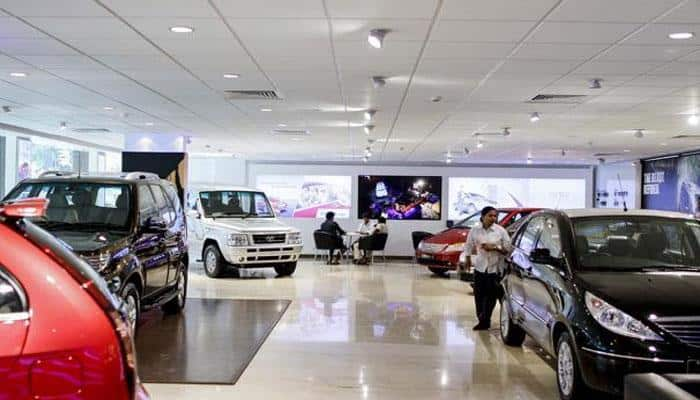Consumers looking to purchase their dream car immediately gravitate towards car loan as it is a quick and cost-effective method of purchasing new and used cars. Most banks in India offer new and pre-owned car loans at attractive interest rates. Now that the dream car is in possession, what about insurance? Like health insurance, car insurance is not a luxury but a necessity in India as the rising number of road accidents in India is no joke. As per Section 146 of the Motor Vehicles Act, 1988, all vehicles in public space should have a motor insurance to cover third-party damage.
Third-party Liability Insurance
In the case of third-party liability insurance, the insured person is offered financial protection against third-party damages. It is the most basic form of motor insurance in India. Instead of the insured person relying on his or her savings to pay compensation to the third-party for damages or injuries caused, the insurance company will handle the costs.
Comprehensive car insurance policy
Although the mandate specifies only third-party liability, it is important for vehicle owners to invest in a motor insurance that covers damage to their own vehicles as well as third-party damage. A motor insurance policy that covers damages to the owner's car and third-party is called a comprehensive policy. A comprehensive car insurance policy with an exhaustive list of add-ons like the zero-depreciation cover will minimise the burden of repair costs on the insured member.
Why is it important to have a car insurance?
It is a legal obligation for car owners to have a valid car insurance at all times in India. Driving on Indian roads without a third party car insurance is a punishable offence. If an individual is caught driving a car without a valid car insurance, then that person is liable to pay fine or be imprisoned under Section 130 (3) r/w 177 of the Motor Vehicles Act, 1988.
By purchasing a car insurance policy, the insured member is protected against any unforeseen financial loss incurred due to a third-party damage or damage to his or her own from an accident or a natural calamity. In the event of a car breakdown repair, a comprehensive car insurance policy comes with 24/7 road assistance, car tracking facility, and towing facility.
The number of road accident fatalities across the country is terrifying. Not everyone in an accident is lucky enough to walk away unscathed. Most accidents result in damage to person as well as vehicle. Injuries to the person may require emergency hospitalisation and a comprehensive car insurance policy will cover some of the hospitalisation expenses.
What are the common car insurance pitfalls?
Now that we know the importance of having a car insurance, let’s focus on the 6 common mistakes to avoid while buying a car insurance:
- Purchasing a policy with the lowest premium: The cheapest policy doesn't necessarily mean the right policy. A lower premium equals a basic cover. In the case of an unfortunate incident, an insufficient insurance cover will not be of use to the insured member or the third-party. Focus should be on purchasing a car insurance policy with an adequate cover.
- Hiding details to retain a low premium: Being dishonest about the age of the driver, driving history, and car accessories to keep the insurance premium at a minimum will certainly backfire at the time of making a claim. Full disclosure is advisable at the time of taking a motor insurance.
- Mistrusting online purchase of insurance: With the advent of technology, most shopping is done online. However, there are misgivings in the consumer's mind when it comes to purchasing an insurance policy online. Insurance companies offer policies at lower costs when purchased online as it eliminates the involvement of an agent who works on commission.
- Choosing a smaller deductible: The insured member has to pay a certain amount (deductible) before receiving a claim. A higher deductible not only lowers insurance premium but also can help the insured person receive No-Claim Bonus for the claim-free years.
- Cancelling existing policy before obtaining a new one: A day without insurance coverage can prove a costly affair. The insurance premium can be high for those without continuous coverage as most insurers tend to ask for previous insurance coverage details.
- Failing to compare policy rates across insurers: With the rising competition among the motor insurance providers, the customers are lured with lower premium rates, attractive benefits, and innovative features. Which is why, it is beneficial to do sufficient research when buying a car insurance.
Also, look out for auto-renewal of car insurance policies, as the existing policy costs can increase annually while still offering insufficient coverage. Visit an online comparison portal to compare the features and benefits of various car insurance policies across the top insurance providers. Get an instant quote on the chosen insurance policy to check eligibility and affordability.
Three things to keep in mind when purchasing a car insurance is to ensure adequate coverage, get rid of redundant policies, and value for money. It is important to fully understand what coverage is offered by the chosen car insurance policy. It is also equally important to look for discounts or offers that may bring down the cost of insurance without affecting the coverage.
(This is sponsored content. The article is not the official stand of Zee Media Corporation Ltd, the owner of http://www.zeenews.com.)
















